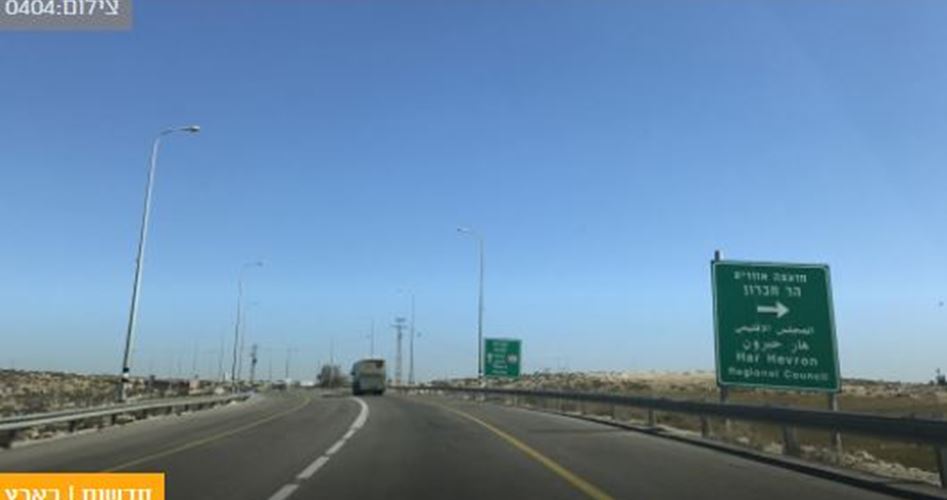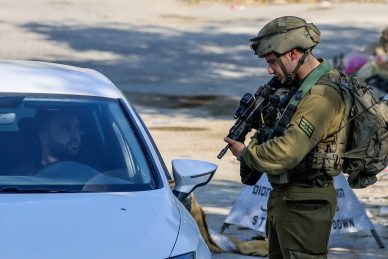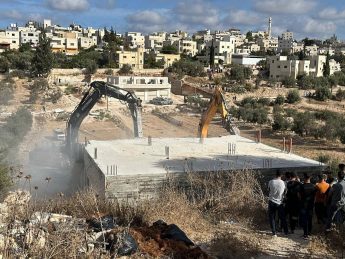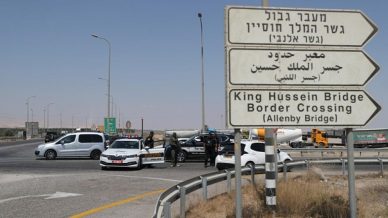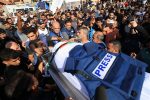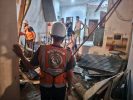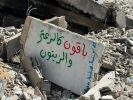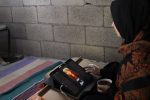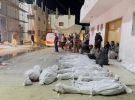With his heart full of sorrow and pain Palestinian farmer Abdullatif Aldamas 75 from the West Bank city of Salfit looks at his land which is located behind the Apartheid Separation Wall in the Valley of Hiyaj and remembers the time when his family used to harvest wheat and sesame from their fields happily and cheerfully until the time the Israeli occupation confiscated the land and killed his son during the Second Palestinian Uprising known as Al-Aqsa Intifada.
Abu Jihad who also works in the field of construction is no longer able to go ahead in working in his favorite field in agriculture due to the many diseases he suffers from and his aging. Despite this he says “I would have planted my land had I been given the opportunity to do so which will allow me to retrieve some of the beautiful memories stolen from me and my family by the Israeli occupation.”
Abu Jihad does not forget the date in which his son Jawad was killed by the Israeli occupation forces on 14 December 2001 while he was trying to stop the Israeli incursion into the city of Salfit along with five other young Palestinians who were killed by the Israeli forces and its special units who stormed the city from five different directions.
We will not leave
Abu Jihad told the PIC reporter “They killed my son stole my land imprisoned me for unfounded claims and I almost lost my life when the Israeli soldiers fired a gas canister at me while I was protesting confiscating my land. We will continue to be steadfast we will not leave and we will die standing and will be buried here.”
Speaking of confiscating his land he says “The borders of the settlement of Ariel are expanding towards the fertile Valley of Hiyaj where settlers buried their dead and where the Separation Wall was later erected. The Israeli occupation no longer allows us to access our lands except for pre-scheduled times set by the Israeli authorities which is not enough to look after the land and to plant our crops. The Israeli occupation forces have also erected a military tower on my land to the north of Salfit and thus destroyed my livelihood from this fertile land.”
Speaking of the amount of lands confiscated by the Israeli occupation he said “they confiscated 38 dunums from the Valley of Hiyaj (agricultural lands and fields allocated for shepherds) then they confiscated 21 dunums from the Sanabil area to erect a military post and a watchtower to monitor the city of Salfit 24/7 making local residents feel uncomfortable due to lights and shootings and soldiers screaming in the area which became a source of anxiety for Palestinian citizens.”
Abu Jihad laments the current situation in his city caused by the non-stop expansion of Israeli settlements as Palestinians became no longer able to build houses in the northern part of the city due to the existence of the settlement of Ariel the second largest Israeli settlement in the West Bank and farmers became no longer able to take care of their olives located behind the Separation Wall due to tightened closure imposed on them.
Abu Jihad finds relief in recalling the old days where he used to get up early in the morning hearing singing birds to harvest his wheat and sesame fields in the summer and where cooperation among farmers and locals ‘was better than it is now’. “Our days were better and happier than now until the Israeli occupation forces came and started building a small number of housing units which by time were turned into huge settlement blocs with an industrial zone attached to it turning our life into a real misery.”
Speaking of his protest against confiscating his land Abu Jihad says “I and other farmers protested against our land confiscation and blocking us from accessing our lands.” He kept silent for a while before saying “To whom shall you complain when the judge is your enemy?”

